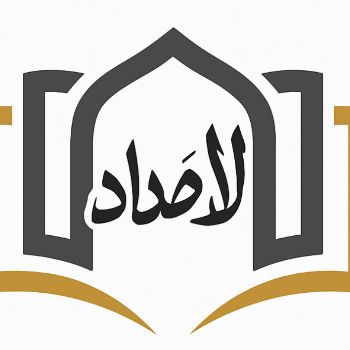Enhancing Madrasa Operations for Educational Excellence

To cultivate a vibrant learning environment within madrasas, it is essential to implement operational approaches that prioritize educational excellence. This involves enhancing administrative systems to ensure smooth functioning and direct resources get more info effectively towards enriching the academic curriculum. Madrasas should foster a culture of continuous improvement by encouraging innovation and partnership among faculty, staff, and the wider community.
- Additionally, regularly measuring student performance through diverse methods is crucial to identify areas requiring attention and customizing educational interventions accordingly.
- Furnishing comprehensive professional development programs for educators can enhance their pedagogical skills and empower them to deliver high-quality instruction.
Nurturing a Culture of Learning: Effective Madrasa Leadership
The success of any madrasa hinges on its leadership. Effective madrasa leaders understand that learning is not merely the transfer of knowledge, but rather a continuous evolution that encourages critical thinking, creativity, and spiritual growth. They foster an environment where students feel empowered to ask questions, explore ideas, and participate actively in their own learning. A thriving madrasa culture embraces diversity of thought and encourages cooperation among students, teachers, and the wider community.
- Furthermore, effective madrasa leaders strive to integrate innovative teaching techniques that connect with students in meaningful ways. They recognize the importance of providing structured learning experiences, while also allowing for adaptability to meet the diverse needs of each student.
- Ultimately, effective madrasa leadership is crucial in shaping the next generation of scholars. By cultivating a culture of learning, madrasa leaders equip students to succeed both academically and spiritually.
Resource Management in Madrasas
Madrasas, established institutions of Islamic education, often face numerous challenges in achieving resource sustainability.
Effective allocation of resources is vital for their ongoing success. Resource acquisition often comes from a varied range of sources, including governmental grants. {Furthermore|{Moreover|In addition, ensuring accountability in the management of resources is indispensable to build confidence among supporters.
Implementing sustainable fundraising models can help address financial limitations. {Moreover,Investing in human capital through the training and development of educators, along with embracing technological advancements, can enhance the quality of education provided by madrasas.
The ultimate goal is to create a sustainable environment that allows madrasas to flourish and continue their important role in preserving Islamic knowledge.
Enhancing Learner involvement and Performance in Madrasas
In the pursuit of nurturing young minds within the esteemed walls of madrasas, it is imperative to foster an environment that ignites spiritual thirst. Madrasas, as centers of Islamic learning, play a pivotal role in shaping the future generation. To ensure students flourish, educators must implement innovative strategies that captivate their minds and nurture their potential. Interactive learning methods, such as role-playing, can convincingly enhance student comprehension. Furthermore, creating a welcoming classroom atmosphere where students feel appreciated is paramount for their overall well-being.
- Exploiting technology in the classroom can provide students with access to a wealth of information and resources, expanding their knowledge base.
- Frequent assessment and feedback are crucial for pinpointing areas where students may need further guidance.
Curriculum Development and Pedagogical Innovation in Madrasas
In the contemporary educational landscape, Religious Institutions are increasingly incorporating modernization strategies to elevate the standard of education. This forward-thinking methodology aims to harmonize traditional Islamic knowledge with modern pedagogical methods, thereby empowering students with the skills and knowledge necessary for success in the 21st century. Moreover, experimentation is being stimulated within Madrasas to develop engaging learning environments. This includes the integration of computer-aided learning and hands-on learning exercises to make education more applicable.
- Examples of pedagogical innovation in Madrasas include the introduction of technology-enhanced classrooms, debate clubs, and field trips.
- These initiatives are helping to revolutionize Madrasas into vibrant centers of education that equip students for a competitive world.
Utilizing Technology in Madrasas
The contemporary/modern/up-to-date madrasa environment/system/setting is rapidly/constantly/continuously evolving/adapting/transforming with the integration of innovative/cutting-edge/advanced technology. Implementing/Utilizing/Adopting technology can significantly/greatly/substantially enhance/improve/boost various aspects of madrasa management, including/such as/like administrative tasks/operational efficiency/educational delivery. Automated/Digital/Online systems can streamline/optimize/simplify processes such as student enrollment/registration/admission, attendance tracking/monitoring/recording, and financial/resource/fund management.
- Furthermore/Moreover/Additionally, technology can provide students/learners/pupils with access to/opportunities for/exposure to a wider range of/broader spectrum of/diverse selection of educational resources, including/such as/like online libraries/textbooks/learning materials. This enriches/complements/supplements the traditional teaching methods/pedagogical approaches/instructional strategies and prepares students for the challenges/demands/requirements of the digital/modern/contemporary world.
- Ultimately/In conclusion/To summarize, technology integration in madrasas presents a valuable/powerful/significant opportunity to modernize/enhance/improve educational experiences, increase efficiency/optimize processes/streamline operations, and prepare students/equip learners/foster the development of the next generation of knowledgeable and skilled individuals.